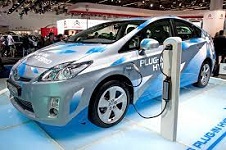Several powerful megatrends – from young, highly connected travelers to the arrival of electric air taxis – will exert an immense influence on air travel over the next decade, forcing industry, governments, and technology to adapt rapidly.
This is according to “Meet the Megatrends,” a new report from SITA that examines 12 emerging technological, societal, traveler, and economic trends that will significantly morph the travel landscape by 2033
These megatrends do not exist in silos but operate in an evolving ecosystem where emerging technologies interconnect the trends and help drive them forward. Data is at the heart of this ecosystem. The increasing willingness of providers to share data across the wider travel industry will help further accelerate these trends and pave the way to the more connected, seamless travel experience that passengers want.
Ilkka Kivelä, VP Strategy and Innovation, SITA, said: “The air transport industry is at a post-pandemic crossroads, facing challenges from all sides. While the travel recovery accelerates globally, airports and airlines are scrambling to provide the seamless travel experience passengers expect, often with slashed workforces and squeezed budgets. The climate crisis demands swifter and more decisive industry action to make travel more sustainable. We now have an opportunity to reimagine the world of travel, connect the dots and transform travel with bold solutions that cross sectors and exploit the latest technologies.”
One of the key trends identified in the report is Gen Z and millennial travelers driving a digital transformation of the transport industry, demanding a more integrated digital journey, and accelerating the digital way of life. Privacy, digital identity rights, and controls for passengers will be a priority for passengers opening the door to a future where we can travel from everywhere to anywhere without the need for physical documents or being stopped for identification.
Another power trend is the automation and emergence of smart airports, which will reshape the workforce, give rise to a new flattened business organization, and streamline operations through technology. By 2030 metaverse operations will be commonplace at leading airports and play a vital role in optimizing processes, avoiding disruption, and facilitating intuitive, immersive control of intelligent airports. This in turn will require new skills and create new opportunities for employees in the industry.
Meanwhile, electric air vehicles are expected to be ubiquitous at major international airports by the end of the decade, operating as an effective auxiliary service and revenue stream for airports and airlines. This year alone, investment in the Urban Air Mobility industry has skyrocketed, with $4.7 billion committed to the development of eVTOL vehicles.
Ilkka Kivelä said: “These trends are shaping SITA’s own innovation agenda. We’re excited to be working across many of these areas and look forward to collaborating with partners to drive positive change across the industry.”
The report was spearheaded by the SITA Lab innovation team and draws upon insights from across the transport industry, SITA’s global research, and the latest cutting-edge proof of concepts to identify the most powerful shifts that will drive the travel industry’s evolution by 2033.
SITA is the air transport industry’s IT provider, delivering solutions for airlines, airports, aircraft and governments. Our technology powers more seamless, safe and sustainable air travel. With around 2,500 customers, SITA’s solutions drive operational efficiencies at more than 1,000 airports while delivering the promise of the connected aircraft to customers of 17,000 aircraft globally. SITA also provides technology solutions that help more than 70 governments strike the balance of secure borders and seamless travel. Our communications network connects every corner of the globe and bridges 60% of the air transport community’s data exchange.
In 2021, SITA became a certified CarbonNeutral® company in accordance with The CarbonNeutral Protocol – the leading global standard for carbon neutral programs. We are reducing our greenhouse gas emissions for all our operations through our UN recognized Planet+ program, while also developing solutions to help the aviation industry meet its carbon reduction objectives, including reduced fuel burn and greater operational efficiencies. In 2022, we announced our commitment to setting science-based emission reduction targets aligned to the Science Based Targets initiative Net-Zero Standard.
SITA is 100% owned by the industry and driven by its needs. It is one of the most internationally diverse companies, providing services in over 200 countries and territories.

